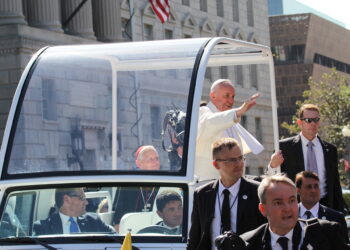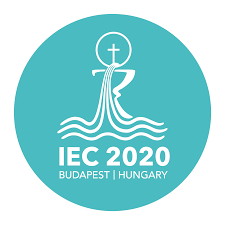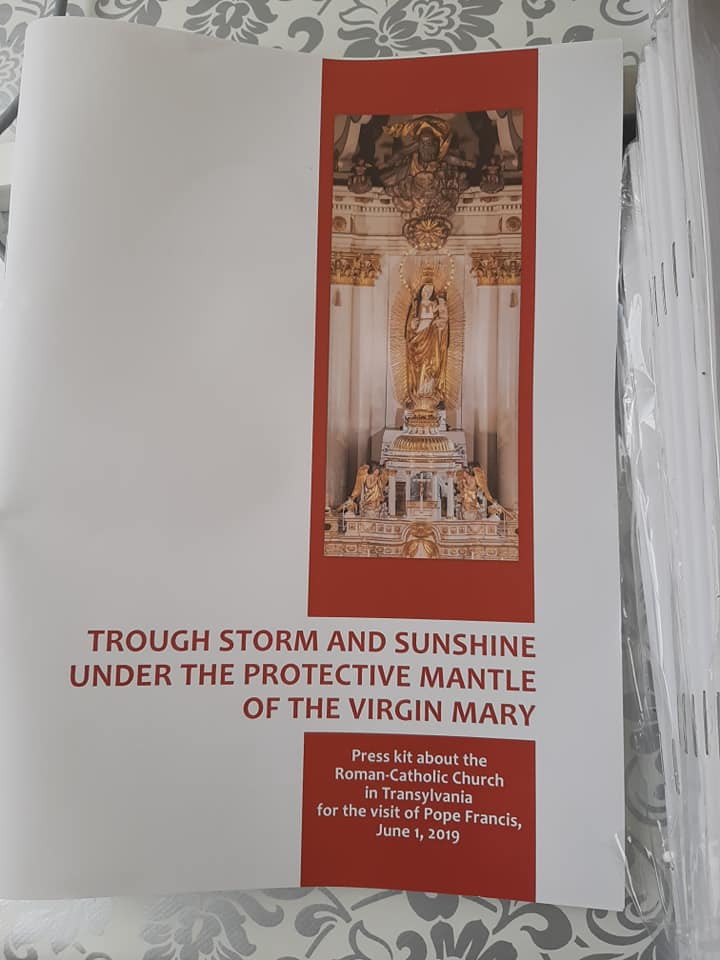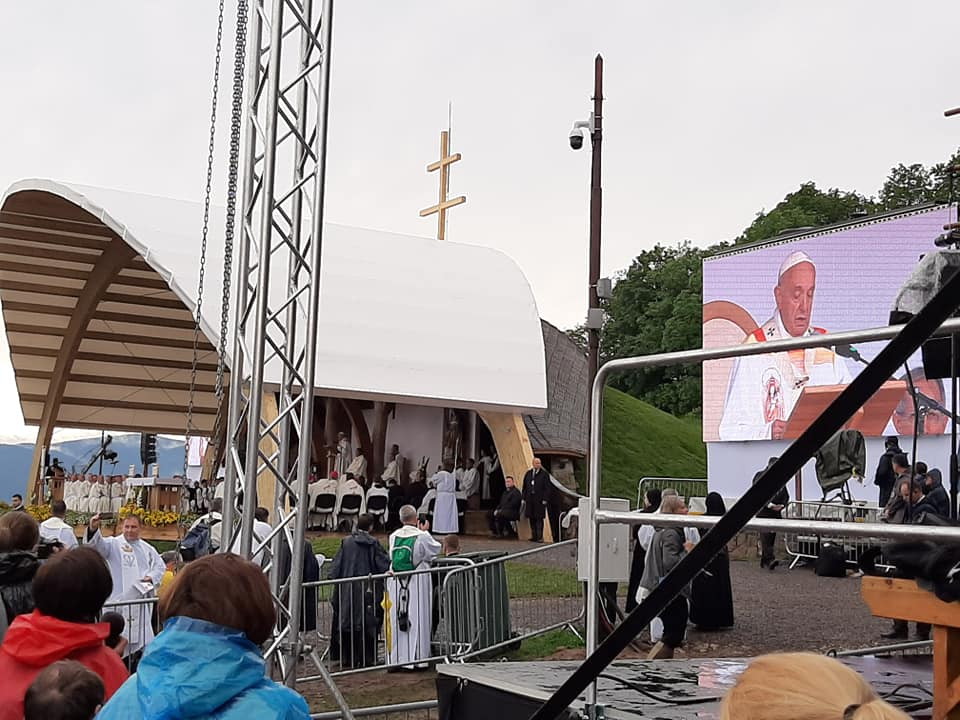 Pope Francis is to pay a visit to Budapest on September 12, 2021: His Holiness is taking part in the 52nd International Eucharistic Congress. This remarkable event brings new aspects to religious protocol, not solely for believers.
Pope Francis is to pay a visit to Budapest on September 12, 2021: His Holiness is taking part in the 52nd International Eucharistic Congress. This remarkable event brings new aspects to religious protocol, not solely for believers.
These days, we live in constant encounters of cultures. Believers and sceptics are both faced with different behavioural patterns, situations and protocol regulations on a daily basis. In our globalising world, the spreading of internationality and ecumenism (also spelled oecumenism, a word of Greek origin, meaning: universal, addressed to the world), the knowledge of religious-ecclesiastical protocol rules is gaining a greater role, soon to be experienced in practise.
We ought to be discussing this matter,-even though the definition of religion itself is nearly impossible to determine, as historians of religion and philosophers all interpret the definition differently- since religion plays a central role in our life since the beginning of time: according to several surveys, more than 80% of the world’s population avowes themselves as followers of a religion; with Christianity being the greatest religion in the world.
Wrong to assume that only the experts of certain fields, protocol, event management and international relations are the only professionals who are required to be familiar with the subject of religious protocol. The practise of religion (including practices of holidays and celebrations, symbols, diets, prayers, religion-appropriate clothing and other practices), as well as the importance of liturgical worship services, symbols are to be kept mind not only in diplomacy and formal relations but also in all kinds of matters in one’s private life, whether we think of formal, religious ceremonies (funerals, weddings, services held within the family) or even of the certain rules of protocol (addressing, gift giving, seating arrangements and dining practices and traditions).
Since we are talking diplomatic relations, in the terms of Hungary and the Holy See’s relationship, the year of 2021 is turning out to be quite remarkable: the 52nd International Eucharistic Congress is to be held in Budapest, 5-12 September, 2021 and His Holiness Pope Francis is announced his intention to visit the congress on the final day, to celebrate the Closing Mass taking place on the 12th of September, 2021.
When it comes to politics at such a high level, papal visits mean that His Holiness is present as the head of the Catholic Church and sovereign of the Vatican City State. He is paying an official visit exclusively to an invitation coming from both the head of state and head of the country’s dominant religion. It is exceptionally important to follow all the designated rules of religious protocol in times of personal audiences and visits to His Holiness in Vatican City.
When meeting with the pope in person, he shall be called: Holy Father. The religious greeting is the following: May Jesus Christ be praised! (Laudetur Jesus Christus!). For ladies, it is behoved to wear below-the-knee length dresses, a light veil (dans voile) and to slightly bow. Gentlemen are expected to wear a dark blue suit during papal audiences. The pope has the right to initiate a handshake and the Piscatory Ring should only be kissed by the followers of the Catholic Church.
It is appropriate to present gifts related to religion, for instance a rosary, a book, devotional articles, objects used in ceremonies or the Bible. In 1991, Árpád Gönz, the late President of the Republic of Hungary, gifted a pair of candlesticks adorned with semi-precious stones, and the pope handed over an oil painting showing the view of Vatican City.
 The latest papal audience took place on 28 August, 2016. His Holiness Pope Francis, the successor of Pope John Paul II and Pope Benedict XVI, welcomed Prime Minister Viktor Orbán in a private audience as part of the annual ICLN (International Catholic Legislators Network) conference held in Rome. The Prime Minister also met several other religious leaders from the Middle East: Ignatius Ephrem Joseph III Yonan, Syriac Catholic and Bechara Boutros al-Rahi Maronite Catholic Patriarchs, Jean-Clément Jeanbart, Archbishop of the Melkite Greek Catholic Archeparchy of Aleppo, Ignatius Aphrem II, Patriarch of the Syriac Orthodox Church and Anba Gabriel, Coptic orthodox bishop of Austria.
The latest papal audience took place on 28 August, 2016. His Holiness Pope Francis, the successor of Pope John Paul II and Pope Benedict XVI, welcomed Prime Minister Viktor Orbán in a private audience as part of the annual ICLN (International Catholic Legislators Network) conference held in Rome. The Prime Minister also met several other religious leaders from the Middle East: Ignatius Ephrem Joseph III Yonan, Syriac Catholic and Bechara Boutros al-Rahi Maronite Catholic Patriarchs, Jean-Clément Jeanbart, Archbishop of the Melkite Greek Catholic Archeparchy of Aleppo, Ignatius Aphrem II, Patriarch of the Syriac Orthodox Church and Anba Gabriel, Coptic orthodox bishop of Austria.
János Áder, the President of State had a private audience with His Holiness in 2013. He gifted His Holiness Pope Francis with a silver goblet from around 1920 and the letters of Paul the Apostle (reprints from the Hugarian edition in 1532.). He also bought His Holiness water from the Virgin Mary fountain, from the Mátraverebély-Holy Well shrine, with which His Holiness blessed his guest, János Áder. The main topic of the private audience was one of the most concerning problems of the 21st century: the protection of drinking water. No wonder the President of State was patron of the Budapest Water Summit, held in 2016 and also in 2019.
His Holiness Pope Francis also visited and held a mass at Csíksomlyó, Hargita County in Romania. Csíksomlyó is inhabited by Hungarians as well as other ethnicities, and the city is the centre of the local Catholic Community. Ms Nikoletta Hossó, Founding President of the Association of International Protocol Professionals (AIPP) was present as a volunteer to assist the Vatican City media delegation.
In our later issues, we are to present the levels of the development of religion, studying and analysing Christianity as the greatest religion in the world today. We are headed to an exciting journey of getting to know religious protocol, a rather fascinating and captivating world, with our readers’ company.






